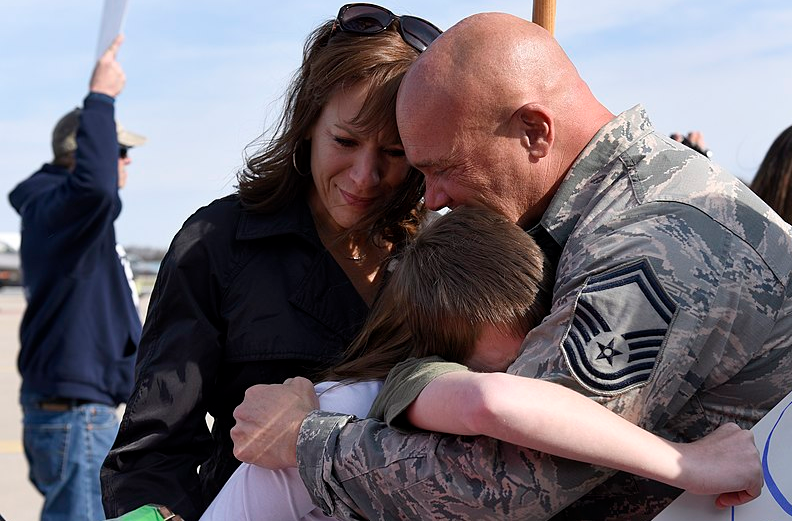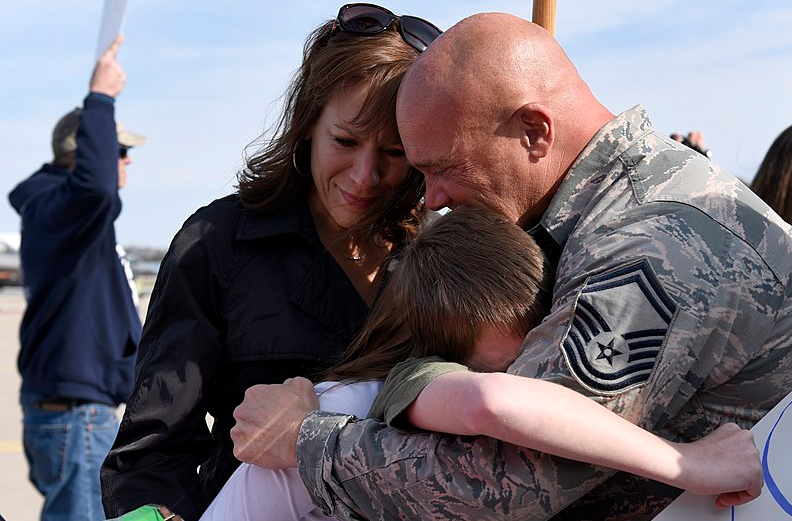by Britta Reque-Dragicevic
This first appeared in Britta’s blog, “Life After War” on June 24, 2012, and is republished with the author’s permission.
____________________
How do you talk about war?
For war survivors and loving families, knowing what to say or how to say it can be overwhelming. Do you talk about the war? Do you ask what it was like? Isn’t it best if the vet shares all that stuff with you? Or should you just leave it alone?
Survivors wonder, too. They balk at the idea of talking about gruesome experiences. They live with the images in their mind and dreams constantly; putting it into words just relives it. And then there is the fear of breaking the precious innocence that loved ones have intact. Survivors wonder: Will people still love me if they know what I know? Will they still love me if they knew what I had to do to survive or achieve my mission? Would they still love me if they saw the dark side of me that I saw? Would they want me sitting at the dinner table if they knew the stuff crawling through my mind?
Much of war gets trampled underneath when a soldier comes home. The initial homecoming period wears off, spouses and partners become casual again, the energy of the home moves back to daily routines, paying bills, and social demands. Survivors who may feel like talking often remain silent, not wanting to disrupt things, and afraid of how loved ones will respond. They may just want to ‘put things behind them.’ Spouses feel uncertain of what to say, how much to say, or even if they really want to know. Survivors soon get trapped in a cocoon of isolation that is both comforting and extremely lonely.
Should you talk about the war?
Yes.
Why? Because sharing pain, guilt, loss, fear, uncertainty, and what it was like breaks the isolation survivor’s live in and lets others in to support healing. War isn’t meant to be carried alone.
How do you talk about war?
There is no easy way. And there are no rules. What I have found is that war is so big and so deep and experienced so intimately that only when we have a profound respect for a survivor’s pain, can we give them the kind of open acceptance that fosters sharing.
That means the pain has to be sacred ground. Not a space to be trampled on, dragged out, or examined under a microscope. Not a place for merely the curious. A survivor’s war is sacred ground. The naked ground where life and death have been faced, met, and known. The survivor is the only one who has the right to touch that ground.
Survivors need to believe they are safe and accepted to invite you into their war-ground. And you need a reason to be there. If genuine compassion and support aren’t your motivating factors, then you have no reason to ask and no right to hear it. Imagine for a moment, the most embarrassing, painful, or humiliating experience you’ve ever had. Something you wouldn’t want anyone you love to know. Now imagine sharing it with your spouse who was not there, didn’t know you then, and has no way of knowing all the little details that surrounded the experience. Imagine talking about this openly. Who would you trust? The people closest to us are the ones we are most afraid to share our secrets with. Why? Because it involves the most risk. Can you see then why a spouse may be the hardest person for a survivor to share an experience with? What loved ones think matters most. Your opinion outweighs everything else. You have the ability to reject him or her and risking that rejection may not be worth it. They’d rather suffer in silence. (Another reason survivors turn to war buddies. There’s no fear of rejection.)
Survivors wonder who to trust. How do you know who really is supportive of you, who can handle it, how do you know if they will still accept you once they know how things really were?
Look for someone who has some familiarity with war, death, and suffering. Someone who knows how to listen. Consider the person’s motivation. Why do they want to listen to you? Have they offered? What would they be able to do with the information? How would knowing about your pain change your relationship with them? Have they been supportive of you in the past? Do they have some background that gives them insight into what you might be going through?
It may not be anyone in your family. It may be a friend. You may want to start with a trauma therapist. Contact a hospital and ask to speak with a grief counselor. They may be able to connect you with people who are genuinely caring and receptive. Or, perhaps you may feel safest by just starting to Blog or journal your experiences in private.
Bottom line: the people a survivor trusts with war experiences need to show a history of being extremely patient, openly caring, non-judgmental, and be willing to face the dark. There is no other way to put hell into words.
Read more about Talking About War in Close to Home, pages 29 – 35.

As the Voice of the Veteran Community, The Havok Journal seeks to publish a variety of perspectives on a number of sensitive subjects. Unless specifically noted otherwise, nothing we publish is an official point of view of The Havok Journal or any part of the U.S. government.
Buy Me A Coffee
The Havok Journal seeks to serve as a voice of the Veteran and First Responder communities through a focus on current affairs and articles of interest to the public in general, and the veteran community in particular. We strive to offer timely, current, and informative content, with the occasional piece focused on entertainment. We are continually expanding and striving to improve the readers’ experience.
© 2024 The Havok Journal
The Havok Journal welcomes re-posting of our original content as long as it is done in compliance with our Terms of Use.



